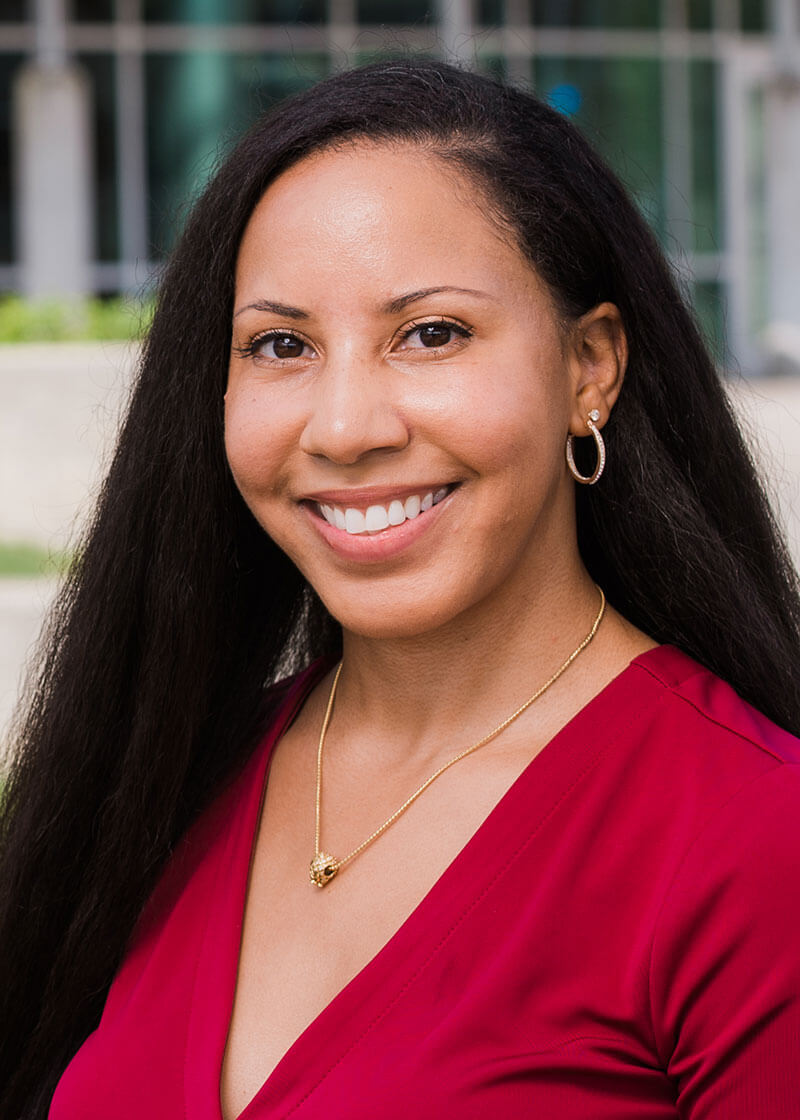Broad research focus?
My research centers on preventing health disparities in cardiovascular disease (CVD), particularly hypertension. Hypertension is the most prevalent CVD risk factor and disparities in hypertension have been documented for decades. Yet, we have made little progress in addressing these disparities. Hypertension is typically considered a mid-life health condition, but evidence is emerging to indicate that younger groups are also impacted by high blood pressure. In fact, one of my recent studies revealed that among 8 to 17 year olds approximately 20%of African Americans and 10%of whites have elevated blood pressure or hypertension. Knowing this, I'd like to develop interventions that reduce the risk for hypertension, its associated disparities and subsequent CVD, especially in children, adolescents, and young adults.
Why public health?
As an undergraduate, I majored in biology and was on the way to medical school. Then I did an internship in the Grady Hospital in the NICU and decided to go the preventive route instead, pursuing an MPH in health policy and management. Following my MPH, I was a health and nutrition specialist at Head Start where many of the preschoolers I worked with already had severe obesity and elevated blood pressure. I became motivated to figure out realistic ways to meaningfully help them - leading me to pursue my PhD in cardiovascular epidemiology.
An exciting ongoing project?
I am eager to translate findings from my epidemiological work into lifestyle interventions that really move the needle. Given that disparities in hypertension between blacks and whites are apparent as early as adolescence, I would like to develop and implement lifestyle interventions that address these disparities in black adolescents. Because physical activity and diet quality are associated with blood pressure and could explain some of the racial disparities in blood pressure, I hope to target physical activity and diet as means to improve blood pressure control among black adolescents. This work is a natural extension of my epidemiological training and experience and will introduce me to intervention design and implementation science. In so much, I hope to translate what we have learned about determinants of hypertension into improved health outcomes and health equity in the real-world.
A favorite (self-authored) manuscript?
As I mentioned, we've known about the racial disparities in hypertension for decades. However, the age at which persons tend to transition from normal blood pressure to prehypertension to hypertension, and whether or not the timing of these transitions differ across race and sex groups, had been relatively unstudied. Using data from the 2007 to 2012 NHANES (National Health and Nutrition Examination Survey), we discovered that disparities in transitioning from normal blood pressure are evident as early as 8 years of age, with boys being less likely than girls to have normal blood pressure at that age. Between ages 8 and 30 years, males and African Americans were more likely than females and whites to transition from normal blood pressure to prehypertension. The largest net transitions from prehypertension to hypertension also occurred in males aged 8 to 25 years, and this was true for both African Americans and whites. Later in life, after age 40, transition rates for men slowed while transition rates for women began to rapidly increase. By age 60, Mexican American females were the most likely to transition to prehypertension. These findings indicate that the timing of the development of prehypertension and hypertension varies greatly by sex and race/ethnicity over the life course, affecting young males and African Americans much earlier than previously thought.
Hardy ST, Holliday KM, Chakladar S, et al. Heterogeneity in Blood Pressure Transitions Over the Life Course: Age-Specific Emergence of Racial/Ethnic and Sex Disparities in the United States. JAMA Cardiol. 2017; 2(6): 653-661.
A favorite conference to attend?
In pre-pandemic times, I really enjoyed the American Heart Association's Epidemiology and Lifestyle Scientific Sessions. In fact, the 2020 meeting was the last conference that I attended in-person. The meeting is great both in terms of the content presented and opportunities for networking.
Most prized professional accomplishment?
Obtaining my PhD. As a first-generation college graduate, earning my PhD was beyond my parents?and grandparents?highest hopes for me. The pride they have in my obtaining a doctorate degree will always mean more to me than any other professional achievement. Growing up in North Carolina, I always wanted to attend UNC Chapel Hill so I am a proud Tar Heel alumna.
Any research ideas on your wish list?
I would love to have access to a large pediatric cohort that rigorously collects blood pressure. NHANES does include children and they do assess blood pressure, but there isn't an equivalent to REGARDS or CARDIA for children.
